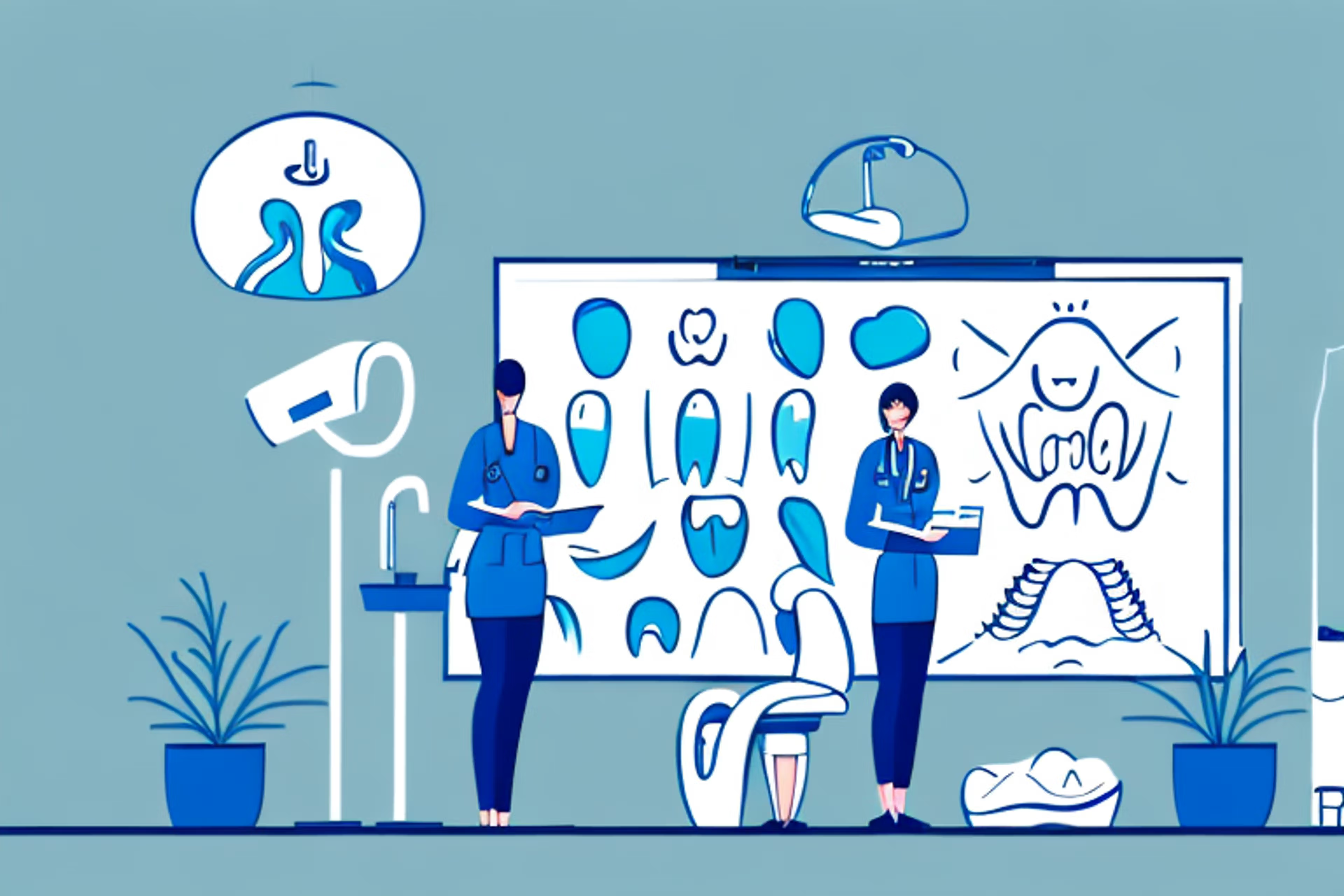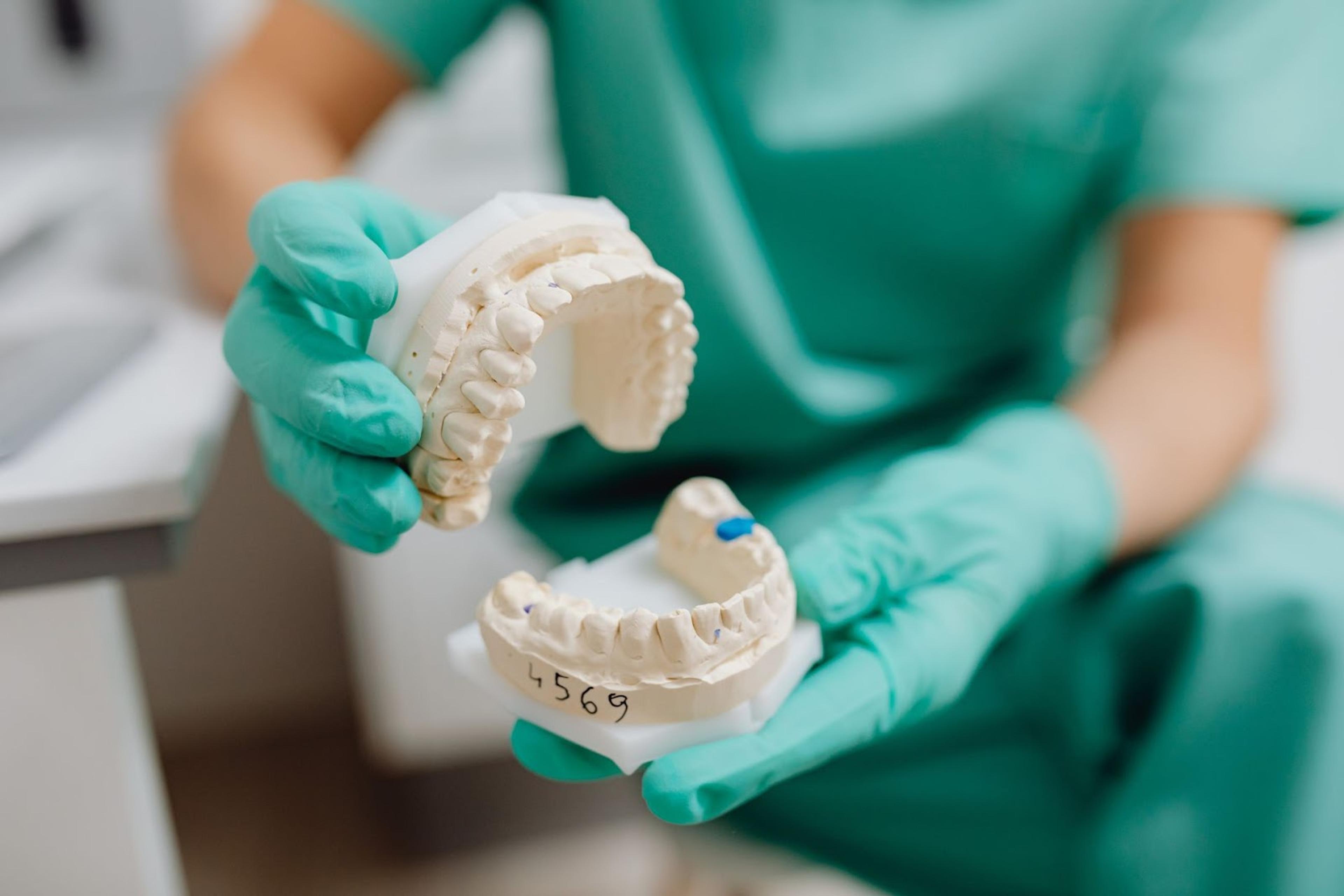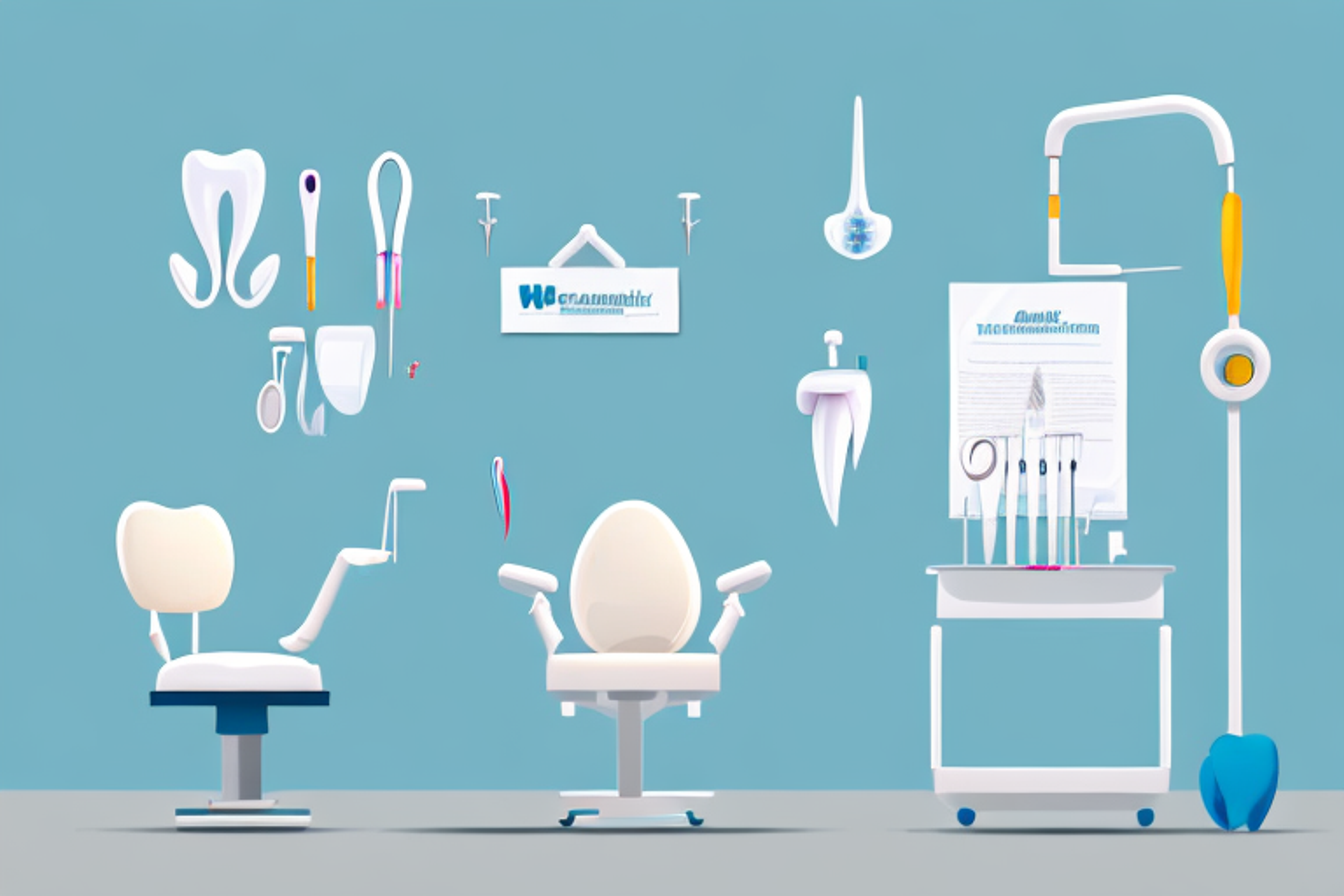What Can You Do With a DMD Degree?
Discover the endless possibilities of a DMD degree and explore the various career paths available to you.
Posted April 10, 2025

Table of Contents
If you're interested in pursuing a career in dentistry, obtaining a Doctor of Dental Medicine (DMD) degree is an excellent path to take. But what can you actually do with a DMD degree? In this article, we'll explore different career paths for DMD graduates, top job opportunities, how to land your dream job, the benefits of pursuing a DMD degree, curriculum, top schools, tips for choosing a program, pros and cons, real-life success stories, advancements in dentistry, and preparing for life after graduation.
Exploring the Different Career Paths for DMD Graduates
As a DMD graduate, you have a variety of career paths available to you. Some options include general dentistry, orthodontics, endodontics, periodontics, oral and maxillofacial surgery, prosthodontics, or dental public health. Each career path requires additional education or training, but a DMD degree provides a solid foundation for any of these specialties.
General dentistry is the most common career path for DMD graduates. General dentists provide routine dental care, such as cleanings, fillings, and extractions. They also diagnose and treat dental problems, such as cavities and gum disease. General dentists may work in private practice, community health clinics, or hospitals.
Another career path for DMD graduates is dental public health. Dental public health focuses on improving the oral health of communities through education, research, and policy development. Dental public health professionals may work for government agencies, non-profit organizations, or academic institutions.
Top Job Opportunities for DMD Degree Holders
One of the benefits of obtaining a DMD degree is the wide range of job opportunities available. Some top job opportunities include dentist, dental hygienist, dental assistant, dental office manager, and dental sales representative.
Another job opportunity for DMD degree holders is to become a dental educator. Dental educators teach and train future dentists, dental hygienists, and dental assistants. They may work in dental schools, community colleges, or vocational schools. Dental educators may also conduct research and publish articles in dental journals.
Additionally, DMD degree holders can work in public health. Public health dentists work to improve the oral health of communities by developing and implementing programs and policies. They may work for government agencies, non-profit organizations, or community health centers. Public health dentists may also conduct research and advocate for policies that promote oral health.
How to Land Your Dream Job with a DMD Degree
To land your dream job with a DMD degree, it's important to network, gain experience, and continue your education. Joining professional organizations, attending conferences, and volunteering are great ways to network and gain experience, while taking continuing education courses can help keep your skills current and make you a more attractive job candidate.
Another important factor in landing your dream job with a DMD degree is to create a strong resume and cover letter. Your resume should highlight your education, experience, and skills, while your cover letter should showcase your passion for the field and your specific qualifications for the job. It's also important to tailor your resume and cover letter to each job you apply for, to show that you have done your research and are truly interested in the position.
In addition, building a strong online presence can also help you stand out to potential employers. Creating a professional website or LinkedIn profile can showcase your work and accomplishments, and allow you to connect with others in the industry. It's important to keep your online presence up-to-date and professional, as employers often use social media and online searches to learn more about job candidates.
The Benefits of Pursuing a DMD Degree
Aside from the many career opportunities available, pursuing a DMD degree provides many benefits. Some of these benefits include high earning potential, job security, opportunities for advancement, and the ability to help others through improving their oral health.
Additionally, pursuing a DMD degree allows individuals to work in a variety of settings, such as private practices, hospitals, and community health centers. This provides a diverse range of experiences and the opportunity to work with a wide range of patients. Furthermore, dentistry is a constantly evolving field, with new technologies and techniques being developed regularly. Pursuing a DMD degree allows individuals to stay up-to-date with these advancements and provide the best possible care for their patients.
The Future of Dentistry: Trends and Opportunities for DMD Graduates
The field of dentistry is constantly evolving, and as a DMD graduate, it's important to stay informed about the latest trends and opportunities. Some current trends include the use of new technologies like 3D printing and AI in dental procedures, as well as an increased focus on preventative care.
Another trend that is gaining popularity in dentistry is the use of minimally invasive procedures. This approach involves using techniques and tools that cause less trauma to the patient's teeth and gums, resulting in faster healing times and less discomfort. Additionally, there is a growing demand for cosmetic dentistry services, such as teeth whitening and veneers, as more people seek to improve the appearance of their smiles.
As for opportunities for DMD graduates, there is a need for dentists in both urban and rural areas, particularly in underserved communities. Many dental practices are also looking for dentists who are skilled in digital marketing and social media, as these skills can help attract new patients and grow the practice. Finally, there is a growing trend towards interdisciplinary collaboration in healthcare, which means that dentists may have the opportunity to work closely with other healthcare professionals to provide comprehensive care to patients.
Understanding the Curriculum of a DMD Program
The curriculum of a DMD program typically includes courses in anatomy, physiology, oral biology, pharmacology, and clinical skills. Students also complete clinical rotations to gain hands-on experience. This comprehensive education prepares DMD graduates for a variety of dental careers.
In addition to the core courses, DMD programs also offer elective courses that allow students to specialize in a particular area of dentistry. These elective courses may include orthodontics, periodontics, endodontics, and pediatric dentistry. By taking these courses, students can gain a deeper understanding of a specific area of dentistry and become more competitive in the job market.
Furthermore, DMD programs also emphasize the importance of patient communication and management. Students learn how to effectively communicate with patients, manage their expectations, and provide them with the best possible care. This training is essential for building strong relationships with patients and ensuring their satisfaction with the dental services they receive.
Top Schools Offering DMD Programs in the US
There are many top-ranked schools in the US that offer DMD programs, including Harvard University, University of Pennsylvania, and University of Michigan. It's important to research different programs and consider factors like location, cost, and reputation before making a decision.
When researching DMD programs, it's also important to consider the curriculum and clinical experience offered by each school. Some programs may have a stronger focus on certain specialties or offer more opportunities for hands-on experience in a particular area of dentistry.
Additionally, it's worth looking into the faculty and resources available at each school. Schools with experienced and knowledgeable faculty members, as well as state-of-the-art facilities and equipment, may provide a more comprehensive and valuable education.
Tips on Choosing the Best DMD Program for Your Career Goals
When choosing a DMD program, it's important to consider your career goals and how the program aligns with them. Researching the faculty, curriculum, and clinical opportunities can help you find a program that's right for you.
The Pros and Cons of Pursuing a DMD Degree
Like any educational path, pursuing a DMD degree has its advantages and disadvantages. Some pros include high earning potential and job security, while cons may include a significant investment of time and money and a challenging curriculum.
Real-Life Success Stories: What Can You Achieve with a DMD Degree?
There are many real-life success stories of individuals who have achieved remarkable success with a DMD degree. From opening their own dental practice to working in a high-profile position in the dental industry, a DMD degree has helped many individuals achieve their career goals.
Advancements in Dentistry: How a DMD Degree Can Help You Stay Ahead
Advancements in dentistry, like new technologies and treatment options, can help professionals stay ahead and provide the best possible care to their patients. Pursuing a DMD degree provides a solid foundation for staying up-to-date with the latest advancements and continuing to provide excellent care.
From Clinical Practice to Research: Exploring the Many Applications of a DMD Degree
A DMD degree can open many doors beyond clinical practice. From teaching to research, a DMD degree provides a solid foundation for pursuing a variety of career paths in the dental field.
The Cost of Pursuing a DMD Degree: Is It Worth It?
One potential downside of pursuing a DMD degree is the significant cost of education. However, the high earning potential and job security that come with a DMD degree may make it a worthwhile investment for some individuals.
Preparing for Life After Graduation: Tips for Securing Employment as a New DMD Graduate
As a new DMD graduate, securing employment can be a challenge. Some tips for preparing for life after graduation include building a strong network, gaining experience through internships or volunteer work, and preparing strong job application materials.
Overall, pursuing a DMD degree provides a solid foundation for a variety of dental career paths. By understanding the different career opportunities, choosing the right program, and staying informed about the latest trends and advancements in dentistry, DMD graduates can achieve success in their chosen field.












